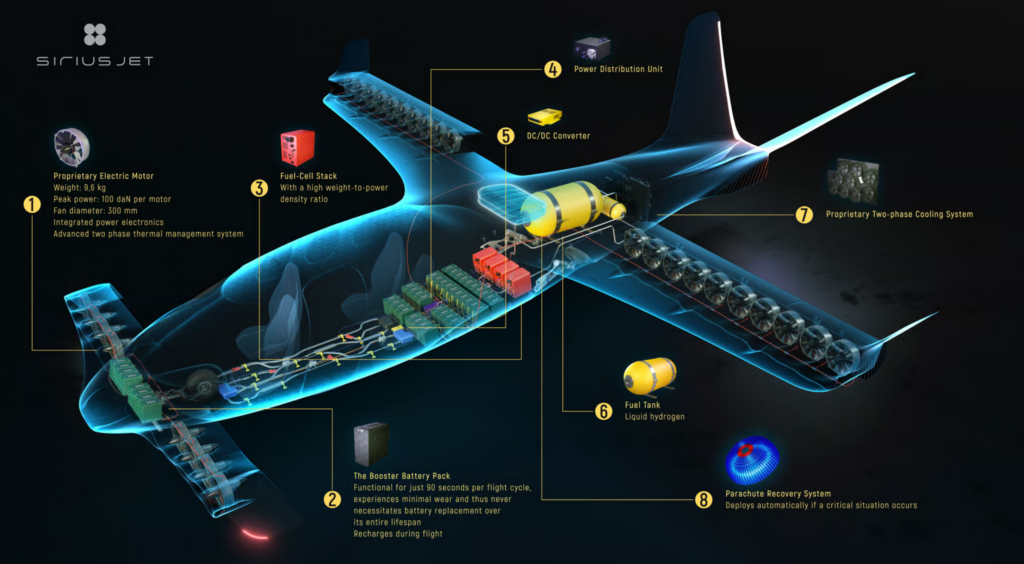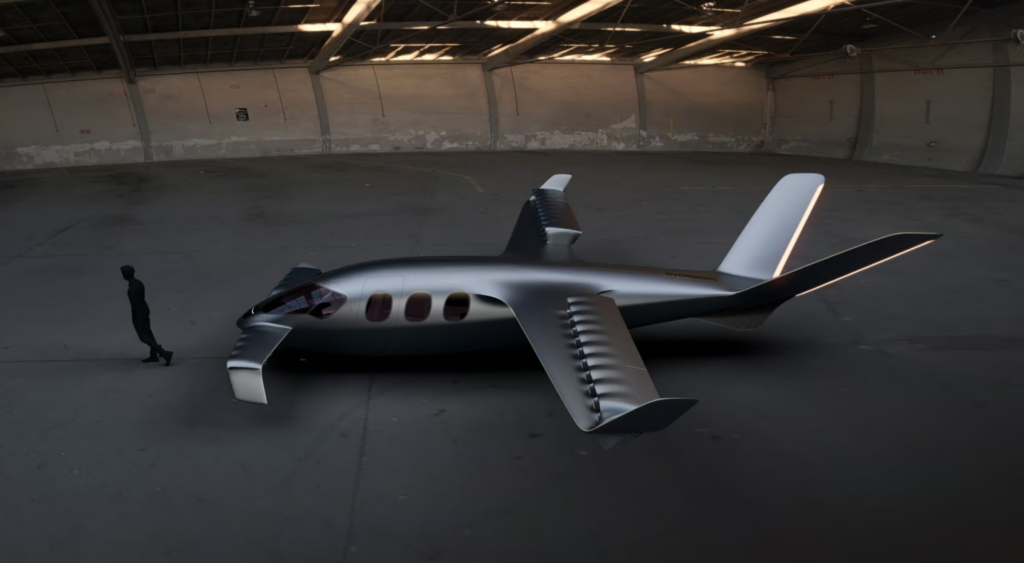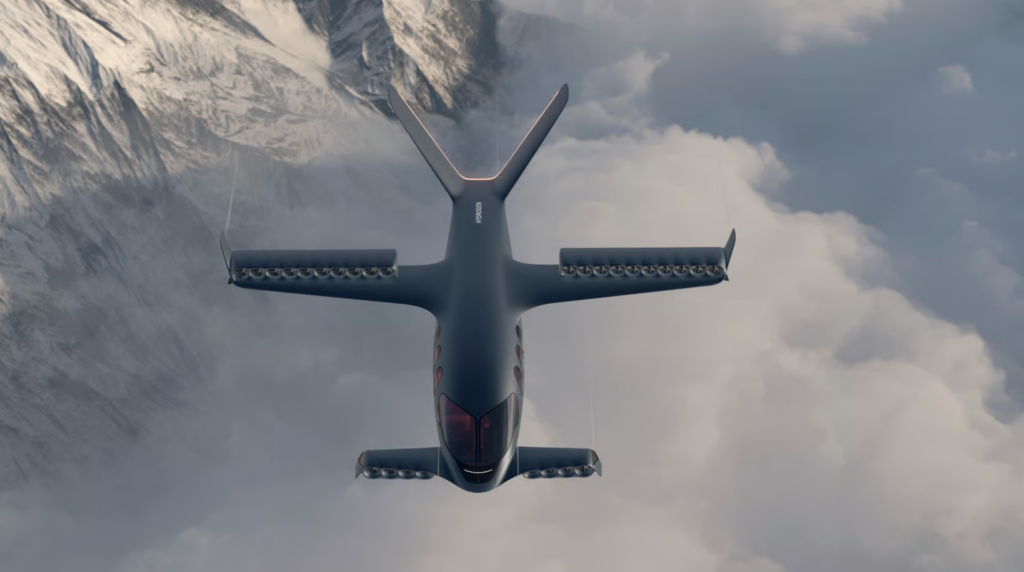In a remarkable leap forward for aviation technology, Swiss startup Sirius Aviation AG has unveiled the Sirius Jet, heralded as the world’s first liquid-hydrogen electric Vertical Takeoff and Landing (eVTOL) aircraft. This groundbreaking innovation promises a remarkable range of 1,150 miles (1,851 km) and speeds of up to 323 mph (520 km/h), all powered by a clean liquid-hydrogen propulsion system. Let’s delve into the intricacies of this pioneering aircraft and explore the journey ahead for Sirius Aviation AG.
Design and Technology Overview:
The Sirius Jet boasts a unique design featuring a deflected vectored thrust system, leveraging 20 electric ducted fans to enable vertical takeoff and landing capabilities. This innovative propulsion system allows the aircraft to rise vertically from a pad before transitioning to forward flight, offering versatility and agility in various operating environments.
One of the key distinguishing features of the Sirius Jet is its utilization of liquid hydrogen as a power source. Unlike traditional battery-powered eVTOLs, liquid hydrogen offers higher-density energy storage, enabling extended range capabilities ideal for intercity travel. This propulsion system, coupled with advanced aerodynamics, enables the Sirius Jet to achieve unprecedented speeds and endurance, setting new standards in the realm of electric aviation.

Development and Certification Process:
Sirius Aviation AG’s journey towards realizing the Sirius Jet has been marked by rigorous research and development efforts spanning several years. With a dedicated team of over 100 engineers, the company has pursued intensive R&D activities in the scenic lakeside town of Baar since 2021. This concerted effort has culminated in the development of a prototype aircraft and the commencement of the certification process with the Federal Aviation Administration (FAA).
The certification process, while essential for ensuring the aircraft’s safety and airworthiness, represents a significant milestone in Sirius Aviation AG’s quest for commercial viability. Scheduled demonstration flights of the prototype aircraft in 2025 will serve as critical validation points, demonstrating the Sirius Jet’s performance capabilities and readiness for operational deployment.
Commercialization and Market Potential:
Looking ahead, Sirius Aviation AG aims to achieve full certification and commence commercial deliveries of the Sirius Jet by 2028. With two distinct variants – the Business version accommodating three passengers for maximum range and the Millennium version catering to five passengers with slightly reduced range – the Sirius Jet offers versatility to suit various market demands.
The potential applications of the Sirius Jet are vast, ranging from executive transportation and intercity commuting to regional air travel. Routes such as Los Angeles to San Francisco, London to Berlin, Melbourne to Sydney, or Beijing to Seoul could become feasible within a single flight, revolutionizing the concept of urban mobility and connectivity.
Challenges and Considerations:
Despite the promising outlook, Sirius Aviation AG faces formidable challenges on its path to commercialization. The development of a liquid-hydrogen propulsion system presents technical complexities and logistical hurdles, including cryogenic fuel storage and distribution requirements. Moreover, ensuring the safety, reliability, and economic viability of the Sirius Jet will demand substantial investments and regulatory approvals.
In navigating these challenges, Sirius Aviation AG must forge strategic partnerships, secure funding, and demonstrate the feasibility of its technology in real-world applications. While the journey ahead may be arduous, the potential societal and environmental benefits of the Sirius Jet underscore its significance as a pioneering solution for sustainable air transportation.

Conclusion:
As Sirius Aviation AG embarks on the next phase of its journey, the world eagerly anticipates the evolution of the Sirius Jet and its transformative impact on the aviation industry. With determination, innovation, and strategic collaboration, Sirius Aviation AG aims to redefine the future of air travel, paving the way for cleaner, faster, and more accessible transportation solutions on a global scale.
Source: Sirius Aviation











